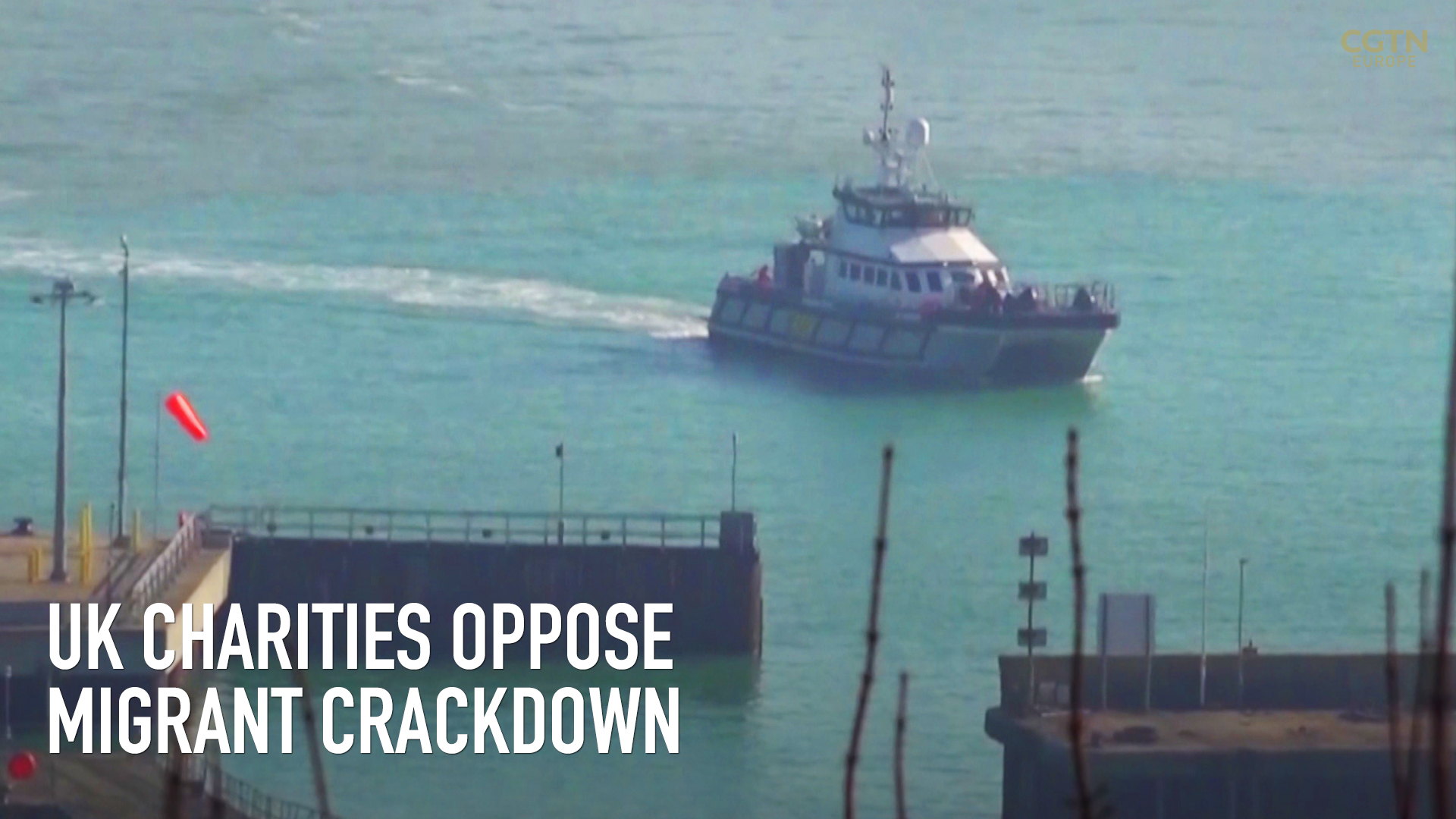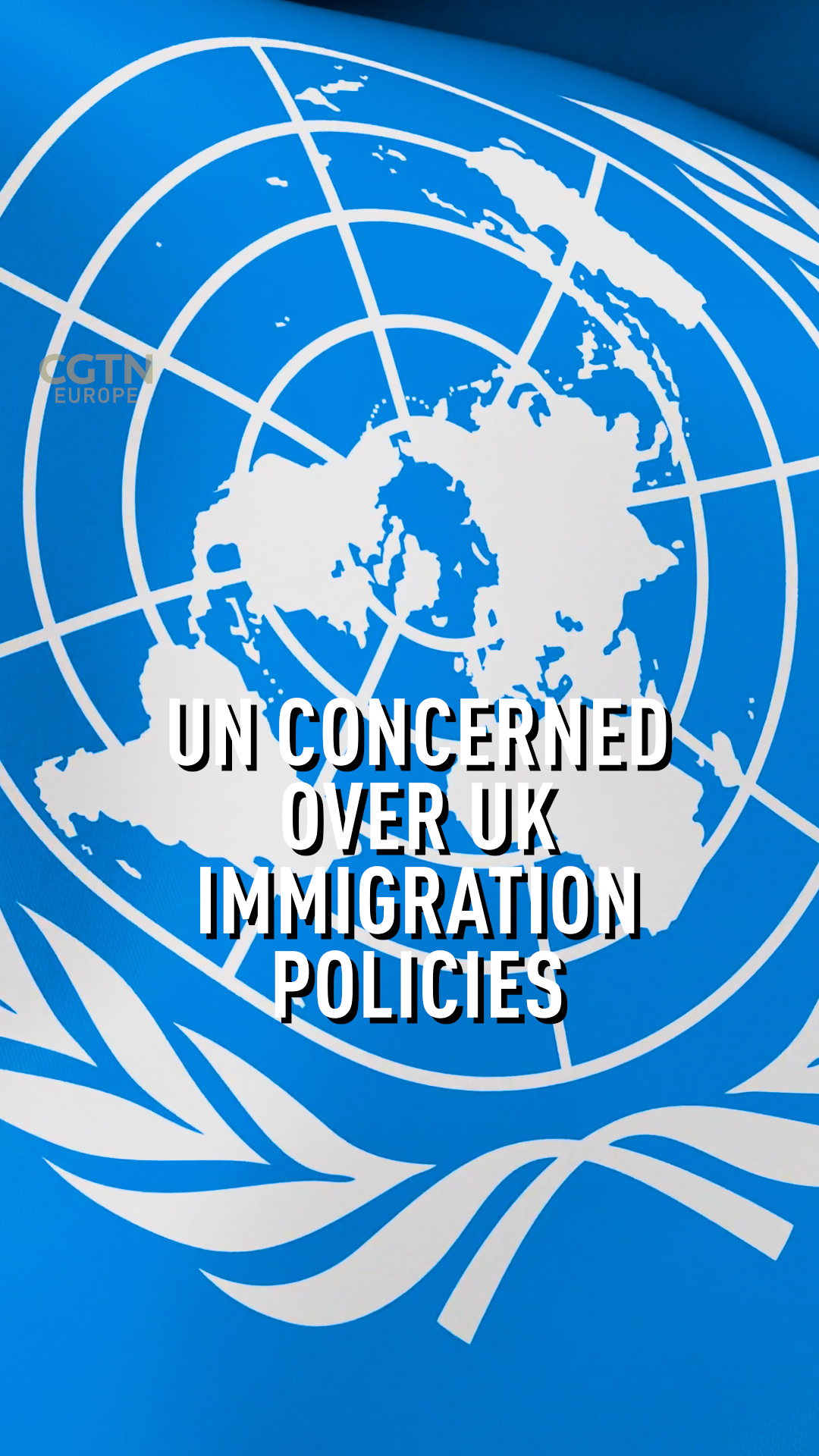02:50

A record 45,000 migrants and asylum seekers crossed the English Channel to the UK last year, making the perilous journey in small boats, in search of a better life.
But this week, under political pressure to crack down on illegal migration, the UK government announced controversial new measures to deter people from making the journey.
"You can't claim asylum, you can't benefit from our modern slavery protections, you can't make spurious human rights claims. And you can't stay," said UK Prime Minister Rishi Sunak, issuing a stark warning to illegal migrants, while visiting border force officials at the port of Dover.
READ MORE
Ukrainian refugees long to return home
Rwanda to welcome migrants from UK
Who is hosting Ukraine's refugees around Europe?
The proposed change in the law would mean no illegal migrant would be eligible for an asylum claim. They would be immediately detained, then either deported or sent to a third country, such as Rwanda.
'A complete ban'
Charities supporting migrants and asylum seekers in the UK are concerned by the measure.
"We just cannot believe the government has gone to these lengths to create what now seems like a complete ban on people coming to the UK," said Fizza Qureshi, CEO of the Migrants Rights Network.
"Essentially it is a ban, because people cannot arrive in the UK without permission."
The United Nations High Commission for Refugees (UNHCR) has also criticized the plan. It says the Refugee Convention, which the UK is also bound by, offers fair process to asylum seekers, even those arriving illegally.
"The effect of the bill would be to deny protection to many asylum seekers in need of safety and protection This would be a clear breach of the Refugee Convention and would undermine a longstanding, humanitarian tradition of which the British people are rightly proud," said the UNHCR in an unusually strong statement.
00:49

The UK Home Secretary Suella Braverman insists the proposals are legal. The government says it must do more to discourage illegal migrants, which are currently costing the country over $2 million a year.
"We are confident that we are complying with the law, domestic and international, but we are also pushing the boundaries and we are testing innovative and novel legal arguments," Braverman said.
'Criminalizing people for seeking asylum'
Those helping migrants say many are genuine refugees fleeing conflict and persecution, who may not have the paperwork to travel by any legal route.
"This act of attempting to criminalize people simply for seeking asylum and simply wanting to live their lives free of oppression and free of war, I think it's beneath us as a country," said Alex Kempton, Director of Operations and Campaigns at the Refugee Buddy Project, a migrant support group based in the coastal town of Hastings, where she says there is strong community support for refugees.
"These are people who have no other choice, who see no other way through," added Kempton.
The government says it will support people arriving from countries such as Afghanistan and Ukraine and an official resettlement scheme for vulnerable Afghans has been in place since the Taliban takeover.
But charities say it is not working, with very few Afghans managing to make it to the UK through the legal system.

UK Prime Minister Rishi Sunak unveiled new legislation on migrant channel crossings on March 7. / Leon Neal/Reuters
UK Prime Minister Rishi Sunak unveiled new legislation on migrant channel crossings on March 7. / Leon Neal/Reuters
'Riskier journeys'
"There are routes the government has supposedly put in place to support the Afghan people after the Taliban took over in 2021. But we're now seeing high numbers of people coming over from Afghanistan because they cannot access those routes," added Kempton.
Migrant support groups are also warning the new government proposals are unlikely to stop illegal arrivals. They believe they could even be an incentive for people to rush to the UK before the law changes, or even go underground.
"We can only assume that the likelihood is they are going to take even riskier journeys to avoid that detection, so if that's not through lorries or trying the train routes. If you're desperate, you'll try anything. And the smugglers will find those routes, sadly, as well," said Fizza Qureshi.
Charities say they will campaign and lobby members of parliament to try to stop the bill becoming law. And even if it is passed, legal challenges are more than likely to slow the implementation of the new measures.
Subscribe to Storyboard: A weekly newsletter bringing you the best of CGTN every Friday